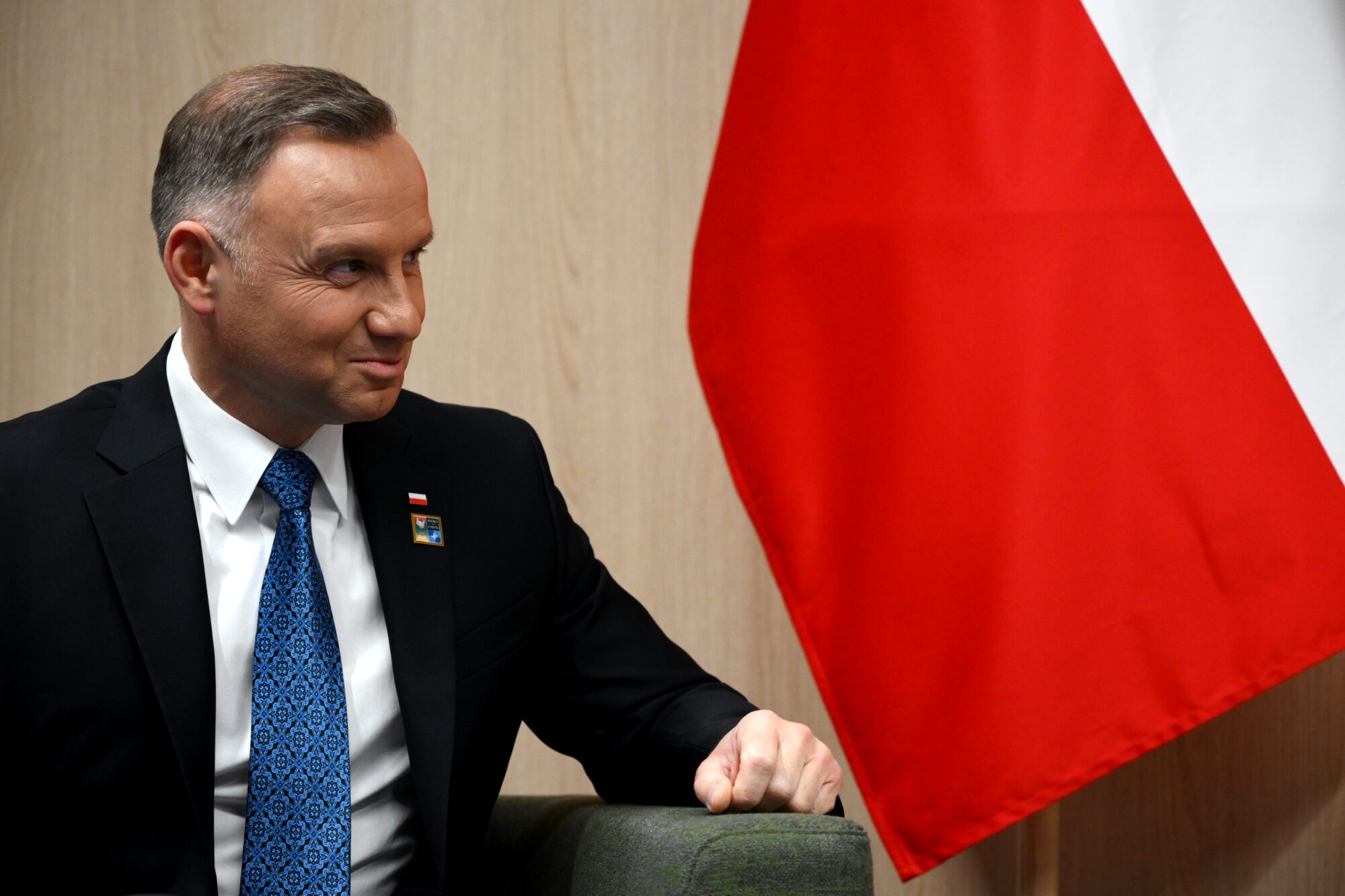
Poland’s President Andrzej Duda looks on during a bilateral meeting with Britain’s Prime Minister during the NATO Summit in Vilnius on July 11th, 2023.
Polish President Andrzej Duda has accused Russian President Vladimir Putin of harboring imperialist ambitions and has called for him to be brought to heel now, lest American soldiers be called upon to intervene in Europe, as they did in the two World Wars.
Duda made the striking remark during an hour-long conversation with The Washington Post, conducted in the presidential palace in Warsaw, of which the publication released two extracts (here and here) last Thursday, August 10th.
The Polish president claimed that Vladimir Putin sought
to revive the Russian empire and must be stopped now, so that American soldiers do not need to sacrifice their lives in Europe to restore peace and freedom in the world, which was the case in World War I and II.
Ever since Russia’s invasion of Ukraine in 2022, Poland, which was itself invaded by communist Russia in 1939, has been Ukraine’s staunchest ally on the continent.
“Right now, Russian imperialism can be stopped cheaply, because American soldiers are not dying. But if we do not put a halt to Russian aggression now, there will be a very high price to be paid,” Duda added.
When asking rhetorically whether Ukraine had enough weapons to change the balance of the war against Russia, Duda noted that as “they are not currently able to carry out a very decisive counteroffensive against the Russian military,” Ukrainian forces “need more assistance” to “get the upper hand.”
Duda said he did not believe Putin could follow through on his threats to use nuclear weapons in Ukraine, recalling that Russia’s nuclear arsenal [the largest in the world] “is under collective control of many people—and that it is not just up to the sole discretion of just Vladimir Putin. So it takes more than one person to decide.”
In a Friday statement, Russia’s Foreign Ministry reaffirmed the Reagan-Gorbachev principle—a reference to a joint statement made in 1985 by former U.S. President Ronald Reagan and ex-Russian President Mikhail Gorbachev who said that “a nuclear war cannot be won and must never be fought.”
Russia’s leadership, it said, was “firmly committed to the principle of the inadmissibility of a nuclear war. We proceed from the fact that there can be no winner in such a war and that it must not be unleashed,” yet adding that “Russia is taking all necessary measures to ensure its national security, territorial integrity, and sovereignty. And it will continue to do so.”
Under Russia’s military doctrine, the use of nuclear weapons is allowed in the event of an existential threat to the Russian state.
Referring to last month’s NATO summit in Vilnius, and Ukraine’s forestalled membership in it, the Polish president promised that he would “push” the U.S.—as the military alliance’s sole great power, its de facto leader—to ensure that Kyiv is formally invited to NATO at the alliance’s 75-year anniversary summit next year.
Under NATO rules, no country presently in conflict can be admitted.
As of July 25th, the Biden administration had committed over $43 billion in security assistance alone to Ukraine.
Duda went on to claim that without NATO’s mutual-defense protections, Putin might never “give up on his quest to conquer” Ukraine.
It is not a matter of whether Putin or other Russian leaders will stop wanting to rule Ukraine one day. They may want to rule the whole world … Will we let them? … I think we must not allow them. We must not tolerate the changing of borders in Europe by force.
On the eve of Russia’s invasion, Putin announced he was launching a “special military operation” to defend Russian speakers in the separatist Donetsk People’s Republic and Luhansk People’s Republic, which had been at war with Kyiv since 2014.
In that time, nearly 14,000 people have been killed in the fighting between Ukrainian forces and Russian-backed militias.
In his video address, Putin recognized their independence, and said Russia sought not to conquer Ukraine, but effect its “demilitarization and denazification,” since, so Putin claimed, NATO had been building up military infrastructure there, in which it posed a threat to Russia.
